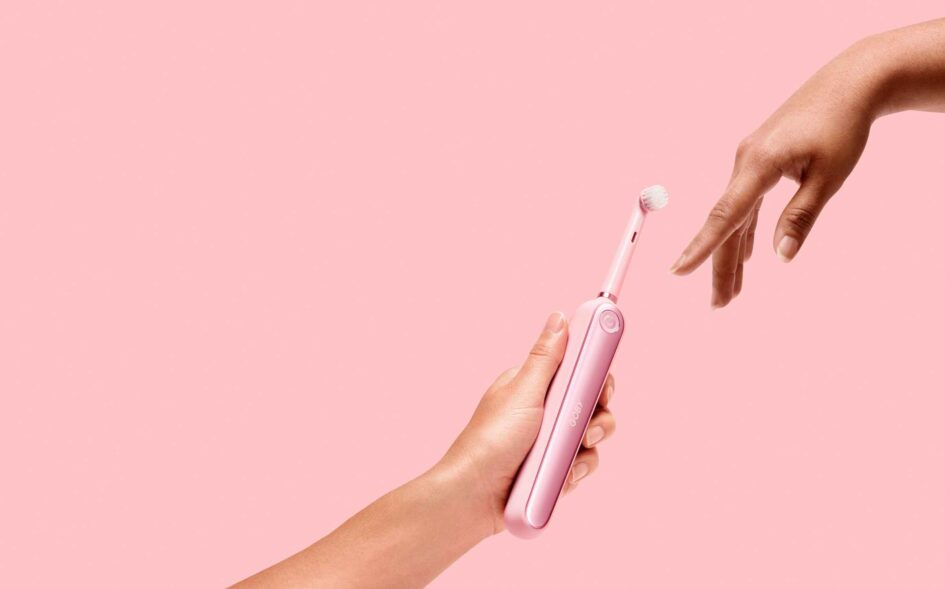Maintaining good oral hygiene is essential for overall health, and brushing your teeth is a vital part of that. While regular toothbrushes are still commonly used, electric toothbrushes are becoming increasingly popular due to their many benefits. In this article, we'll explore the advantages of using an electric toothbrush over a regular one, and why it's recommended by dental professionals.
What is an Electric Toothbrush?
An electric toothbrush is a toothbrush that uses electric power to move the bristles, either through a battery or by being plugged into an electrical outlet. The brush head moves rapidly, providing more brush strokes per minute than a manual toothbrush.
Benefits of Using an Electric Toothbrush
There are several reasons why an electric toothbrush is better than a regular toothbrush:
More Effective Cleaning: Electric toothbrushes have a rotating or vibrating head that helps to remove plaque and other debris more effectively than a regular toothbrush.
Timed Brushing: Many electric toothbrushes have a built-in timer that helps you to brush for the recommended two minutes, ensuring that you're cleaning your teeth thoroughly.
Easy to Use: Electric toothbrushes are often more comfortable to hold and require less effort to use than regular toothbrushes, making them ideal for people with limited mobility or those with dexterity issues.
Customizable Settings: Many electric toothbrushes have customizable settings that allow you to adjust the speed and intensity of the brushing action, making it easier to get a personalized cleaning experience.
Fun for Kids: Electric toothbrushes can be a fun and engaging way to get kids excited about brushing their teeth. Many models have fun designs and even play music to keep kids entertained while they brush.
How to Choose the Right Electric Toothbrush
When choosing an electric toothbrush, there are several factors to consider:
Brush Head Size: Choose a brush head size that fits your mouth comfortably, allowing you to reach all areas of your mouth.
Bristle Type: Choose a brush head with bristles that are gentle on your gums but tough on plaque.
Battery Life: Choose an electric toothbrush with a long battery life that can last for several days between charges.
Price: Electric toothbrushes can vary greatly in price, so choose one that fits your budget while still meeting your needs.
Pros and Cons of Electric Toothbrushes
Pros:
- More effective at cleaning teeth
- Timed brushing ensures proper cleaning time
- Customizable settings for a personalized cleaning experience
- Easy to use, especially for people with limited mobility or dexterity issues
- Can be a fun way to get kids excited about brushing their teeth
Cons:
- More expensive than regular toothbrushes
- Require charging or battery replacement
- May not be as travel-friendly as regular toothbrushes
Who is Recommended to Use an Electric Toothbrush?
Electric toothbrushes are recommended for almost everyone, but they are particularly useful for:
- People with limited mobility
- People with braces or other dental work
- Children who need extra encouragement to brush their teeth
- People with a history of gum disease or tooth decay
FAQs
Q: How often should I replace my electric toothbrush head?
A: It's recommended to replace the brush head every three months or sooner if the bristles become frayed.
Q: Can I use an electric toothbrush with braces?
A: Yes, an electric toothbrush can be used with braces, and in fact, it is often recommended. Electric toothbrushes can provide a more thorough cleaning, especially around the brackets and wires of braces, which can be difficult to clean with a manual toothbrush. However, it's important to use a brush head that is designed for use with braces, as these typically have softer bristles to avoid damaging the brackets or wires.
Q: Are electric toothbrushes safe for children?
A: Yes, electric toothbrushes are generally safe for children to use, but it's important to choose an appropriate model for their age and ensure they are using it correctly. Some electric toothbrushes come with features specifically designed for children, such as smaller brush heads or timers to help them brush for the recommended two minutes. As with adults, it's recommended to replace the brush head every three months or sooner if the bristles become frayed.
Q: Are electric toothbrushes better than regular toothbrushes?
A: Yes, electric toothbrushes are generally more effective at cleaning teeth and have customizable settings for a personalized cleaning experience.
Q: Who should use an electric toothbrush?
A: While electric toothbrushes can benefit anyone, they are especially recommended for people with orthodontic appliances, limited mobility, gum disease, or children.
Q: Are electric toothbrushes more expensive than regular toothbrushes?
A: Yes, electric toothbrushes can be more expensive than regular toothbrushes, but they also offer more advanced cleaning features.
Conclusion
In conclusion, electric toothbrushes offer a more effective and efficient way to clean your teeth. They are especially recommended for people with orthodontic appliances, limited mobility, gum disease, or children. While they may be more expensive than regular toothbrushes, they offer more advanced cleaning features and a personalized cleaning experience. So, if you're looking for a better way to clean your teeth, an electric toothbrush may be the way to go.
This is not a sponsored post, in fact just a guideline from MostReviewed.co.uk
